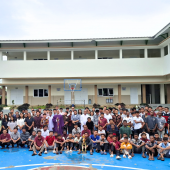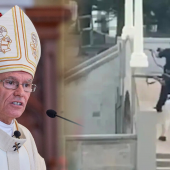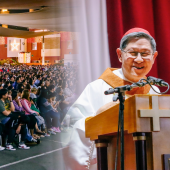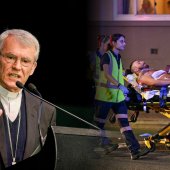Indonesian woman elected as one of 8 new presidents of World Council of Churches
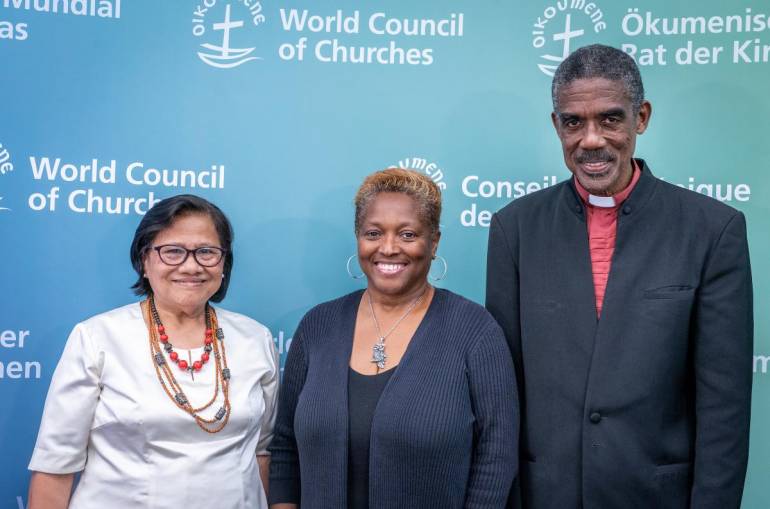
An Indonesian woman theologian has been elected as one of the eight new presidents of the World Council of Churches (WCC).
Rev. Dr Henriette Hutabarat-Lebang, from Gereja Tora, a Reformed church in Indonesia, was elected Asia president.
She is a church leader and ecumenist from Indonesia. She is a current member of the WCC central committee, and has served the ecumenical movement since her involvement in the Youth Working Group of the National Council of Churches in Indonesia began in 1976.
The WCC's 11th Assembly elected eight new presidents, six regional and two from Orthodox churches, in a vote on September 5 with 574 delegates present. The 10th WCC was held in Busan, South Korea, October 30 – November 8, 2013.
The 11th Assembly of the WCC is taking place in Karlsruhe, Germany, from August 31 to September 8, under the theme "Christ's love moves the world to reconciliation and unity."
According to the WCC Constitution, the role of the WCC presidents is to promote ecumenism and interpret the work of the WCC, especially in their respective regions. The presidents are ex-officio members of the WCC central committee.
During a press conference on September 6, Hutabarat-Lebang, the newly elected WCC president for Asia and a delegate from the Toraja Church (Indonesia), stressed the importance of preserving Indigenous spiritualities to counter unjust societal structures and advocate for the rights of the earth.
She emphasized the importance of maintaining a culture of sharing and respect despite differences in ethnicity, race, religion, and socioeconomic status.
Faced with the reality of her home country's 700 ethnicities and languages, Hutabarat-Lebang spoke about a deeper spirituality taught by her ancestors that is visible in their local communities, the spirituality of sharing and helping one another.
In her context, they have developed "spiritualitas keugaharian," or spirituality of moderation, which compels people to avoid the culture of greed in acquiring wealth and power, as well as contributing to the destruction of the earth through pollution and practices that endanger nature.
"In my culture, there is that expression about the unity of human beings with all of creation. We are part of God’s creation. We need to take care of the environment because the Earth is our home," Hutabarat-Lebang added.
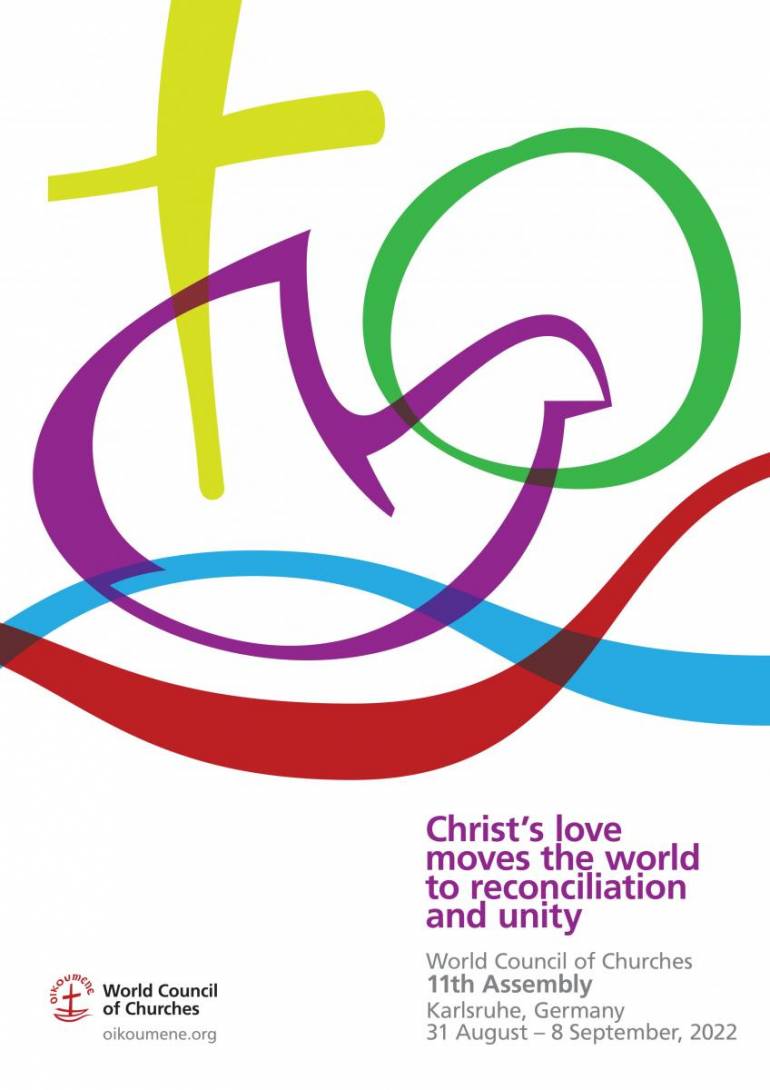
The WCC Assembly is the highest governing body of the WCC and normally meets every eight years. It is the only time when the entire fellowship of member churches comes together in one place for prayer and celebration.
A WCC Assembly is a special time in the lives of member churches, ecumenical partners, and other churches, as it brings together more than 4,000 participants from all over the world.
It is a unique opportunity for the churches to deepen their commitment to visible unity and common witness. This makes a WCC Assembly the most diverse Christian gathering of its size anywhere in the world.
The WCC's 11th Assembly is taking place in Germany at the joint invitation of the Evangelical Church in Germany (EKD), the Protestant Church in Baden, the Council of Churches in Germany, the Union of Protestant Churches in Alsace and Lorraine (UEPAL), and the Protestant Church in Switzerland.
The last assembly in Europe took place in Uppsala, Sweden, in 1968.
The number of WCC member churches is now 74, representing over 60 million Christians.
The WCC is a worldwide Christian inter-church organization that was founded in 1948 to promote ecumenism.
The Assyrian Church of the East, the Oriental Orthodox Churches, the majority of jurisdictions of the Eastern Orthodox Church, the Old Catholic Church, the Lutheran Churches, the Anglican Communion, the Mennonite Churches, the Methodist Churches, the Moravian Church, the Mar Thoma Syrian Church, and the Reformed Churches, as well as the Baptist World Alliance and Pentecostal Churches, are full members today.
The Catholic Church is not a full member, although it sends delegates to meetings who have observer status.
The Asia region of the WCC stretches from Afghanistan on the western edge to Japan and North Korea far up in the northeast, Mongolia in the north, and Timor-Loro'e down in the southeast. Sub-regions known as Asia Minor and Central Asia are not part of it.
On the other hand, as a result of the participation of the churches from Australia and New Zealand in the ecumenical movement in the region, churches in these countries are part of the Asian ecumenical network.
Except for the Philippines, Timor Leste, and to some extent, South Korea, Christianity is a minority religion in all Asian countries. In some countries, e.g. Japan, Mongolia, and Thailand, the Christian community is a tiny minority of less than 1%. - Emiliana Saptaningsih with input from the World Council of Churches
Radio Veritas Asia (RVA), a media platform of the Catholic Church, aims to share Christ. RVA started in 1969 as a continental Catholic radio station to serve Asian countries in their respective local language, thus earning the tag “the Voice of Asian Christianity.” Responding to the emerging context, RVA embraced media platforms to connect with the global Asian audience via its 21 language websites and various social media platforms.











